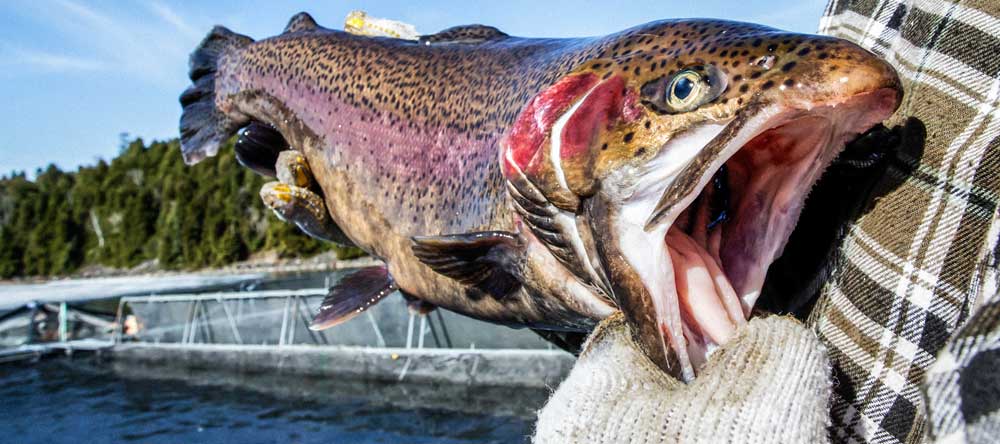by Giovanni Capriotti
EVANSVILLE—Back in the good old days of the NHL, initiation was a common practice for rookies.
The first contract and encounter with other accomplished professional players had to be celebrated through a manly ritual. Probably no mom would be happy for a similar treatment reserved for her boy, however ceremonies to build and cement a group proved to be effective in many team sports.
A Toronto hotel, in 1978, was the theatre of the 20-year-old Mike Thomas Meeker’s initiation. The veterans of the Penguins shaved all his body and head and applied a culturist cream to his skin. The feeling was pretty much similar to pouring pure alcohol on an open wound.
Mr. Meeker, a successful University of Wisconsin alumni, despite being in the pipeline to become an elite hockey player, did not like the lifestyle of the player off the rink.
He loved the game, but he was aware that once he was done playing something completely different would show up on his path.
Unfortunately he did not have to wait a long time. He spent part of the 1978-79 season out for a back injury. The only highlight of the four games he played for the Penguins was the fight he picked with Rick MacLeish in his first NHL game ever.
Mr. Meeker struggled all summer to be back in the game, but the kind of injury he suffered did not allow him to be part of the league anymore. Later he spent two years playing in Sweden and in 1983 he officially retired from the scene.
Fishing and the wilderness had always been fascinating to Mr. Meeker since his hockey days. After the end of his playing career, he spent two years in British Columbia, near Prince George, working in a local hatchery and learning the ins and outs of fish farming.

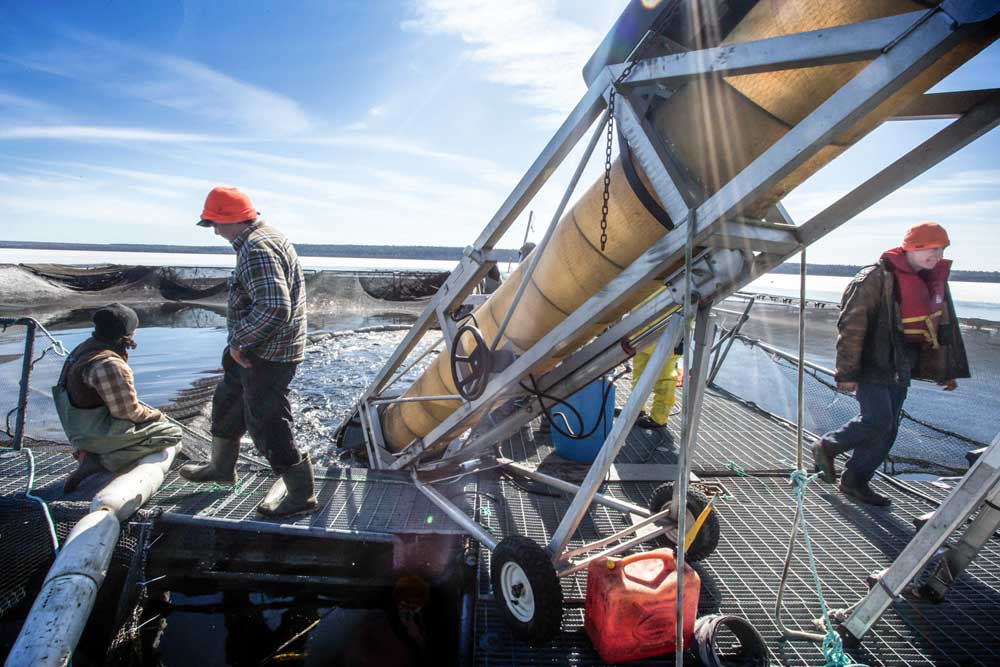
A convinced environmentalist, his idea has always been to embrace this activity in a sustainable way. Over the course of time, living closely to the wilderness allowed Mr. Meeker to shape a balanced approach to the environment, refraining from any propagandist statement or false moral. At the end of the day, commenting from a comfy living room has always been easier than being on-the-spot.
“If I weren’t convinced of the project’s substantiability, I wouldn’t do it,” he said enthusiastically.
“See? I keep the fish cages practically in the backyard of my house—do you think I would shit there?” he continued, smiling.
In Canada it appears not to be uncommon, when looking at rural or remote areas, to experience discordance between the locals and the city regulators. Generally the two approaches clash. On one hand there is the academic credo fostered on books and scientific research, while the other side of the coin flaunts years of consumed local experience, which often tends to confute the validity of the official theories.
Only three years after his short NHL stint, Mr. Meeker and his wife Sharon placed roughly 3,000 rainbow trout in a homemade cage on Lake Wolsey. This was the first commercial aquaculture establishment on Manitoulin Island. The family has lived on the same property ever since.
“I firmly believe in the philosophy of the recycle and reuse. I don’t want anything to be wasted from the fish that I grow,” Mr. Meeker said, pointing to a huge sand-looking pile scattered with seagulls.
“That is the compost of my trout. The fish heads and guts make an incredibly effective fertilizer, which goes by the name of Meeker’s Magic Mix,” he proudly continued.
The Meeker’s rainbow trout production grew slowly up until 1994 and it has stayed at the same level ever since. He is widely recognized for his cutting edge technologies in fish farming and is the man behind Ontario’s first submersible cage system and fines removal feed delivery system.
His aquaculture passion has brought him to work closely with the Laurentian University and Environment Canada on topics such the bottom sediment studies.
However, he is still encountering resistance from the main regulatory institutions.
“I believe I have the experience and know how to support the substantiability of my project,” he said. “Every year I have to prove my point and I am getting kind of tired of it,” he admits. “Honestly, I think I will make sure everything will get recorded this year. I have to look into this possibility with my lawyer.”
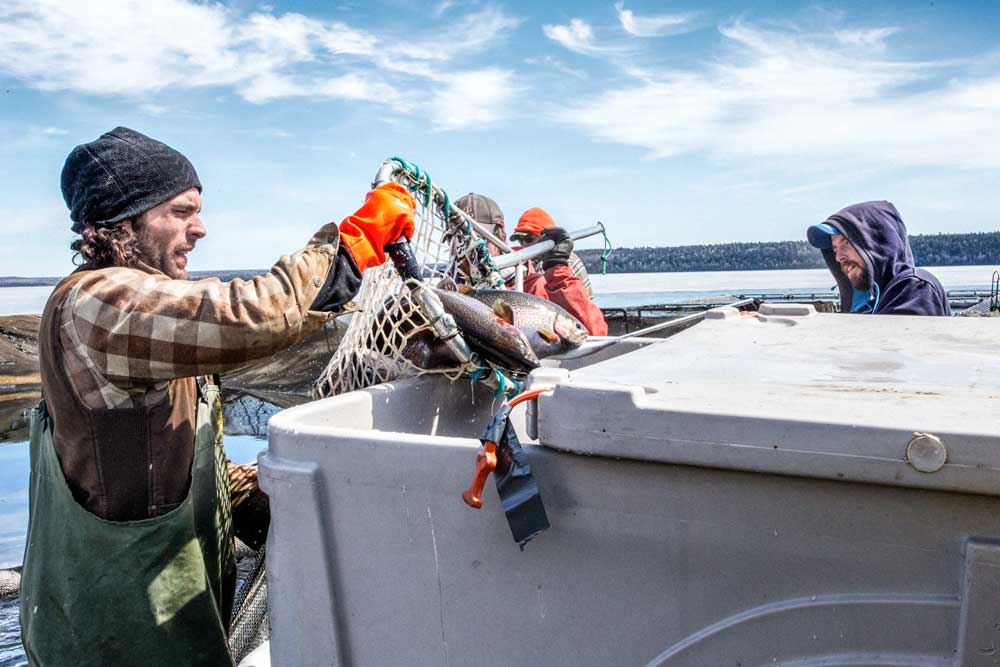
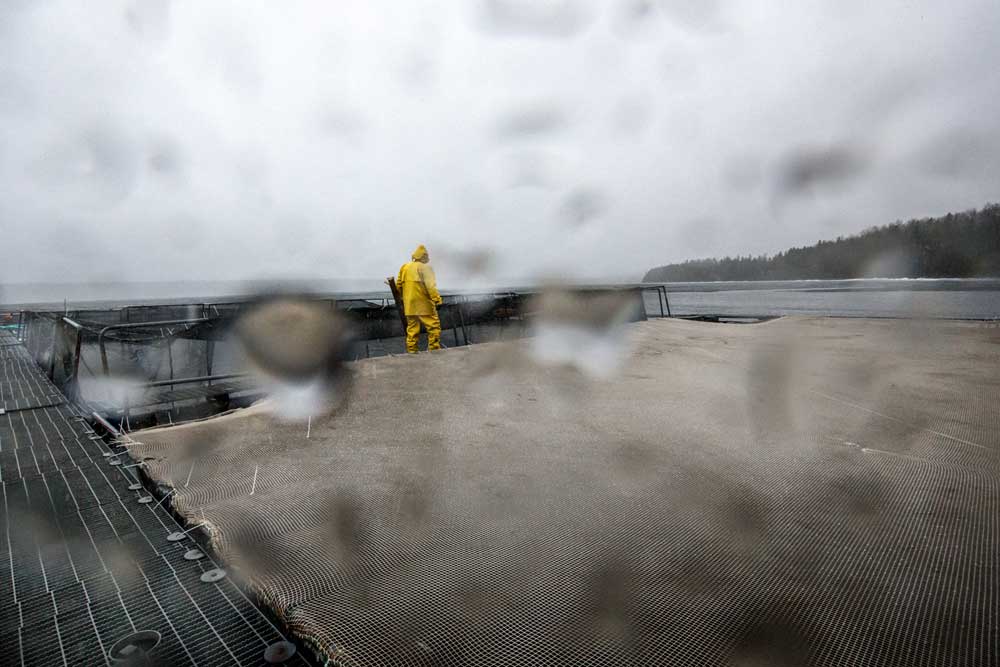
Truthfully, the kind of business he established on the Island is one-of-a-kind socially too. His company was able to create multiple jobs in a place where the youth tends to leave for the lack of occupation, and eventually come back and find the same situation jobwise.
Jamie Gibson is married and father of two girls. He has worked at the Lake Wolsey fish farm for roughly six years. His brother Matt joined him shortly after.
“Winters are bitterly cold. Sometimes the wind chill makes the temperature drop at 40 below. Yet I wouldn’t want to work indoor. I am an outdoor guy,” he said holding his three-year-old daughter.
Matt, his brother, sits on the couch resting after work. Once the cages have been sunk there is not much to do and the two can enjoy shorter shifts or days off.
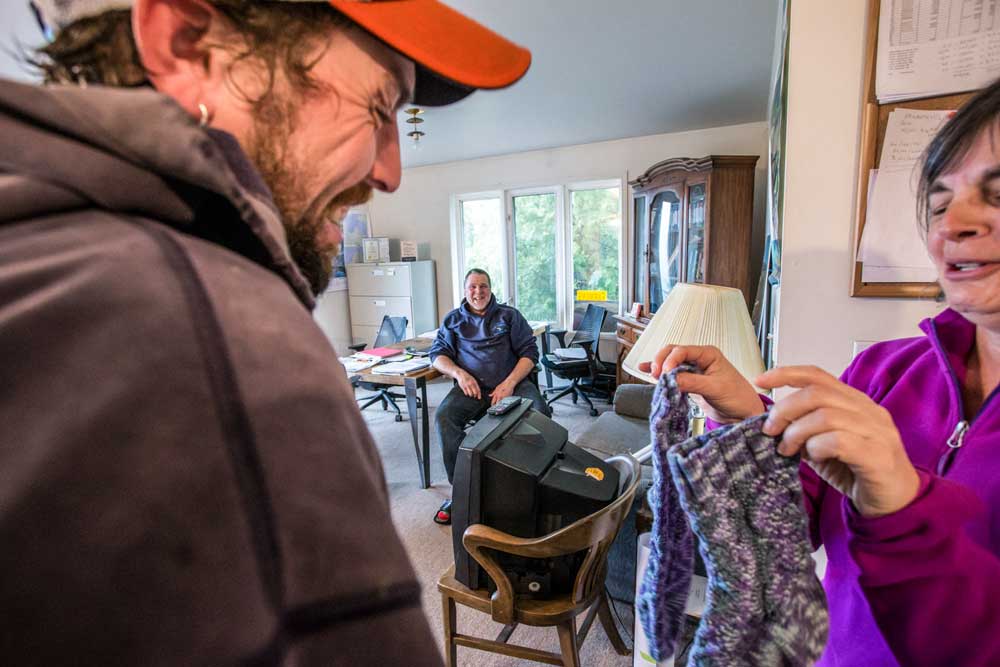
To have a steady and secure job on Manitoulin Island is a blessing. Mr. Meeker definitely succeeded in providing jobs for Islanders and at the same time a good life-style that allows them to afford a mortgage and live a comfortable existence.
In a world where minimum wage seems to be threatened on a daily basis, possibly the passion and the commitment of a man toward his job and the community rendered the figure of the entrepreneur under a different and more humane light. Entrepreneurship does not always mean environmental disasters and uncontrolled resources exploitation.
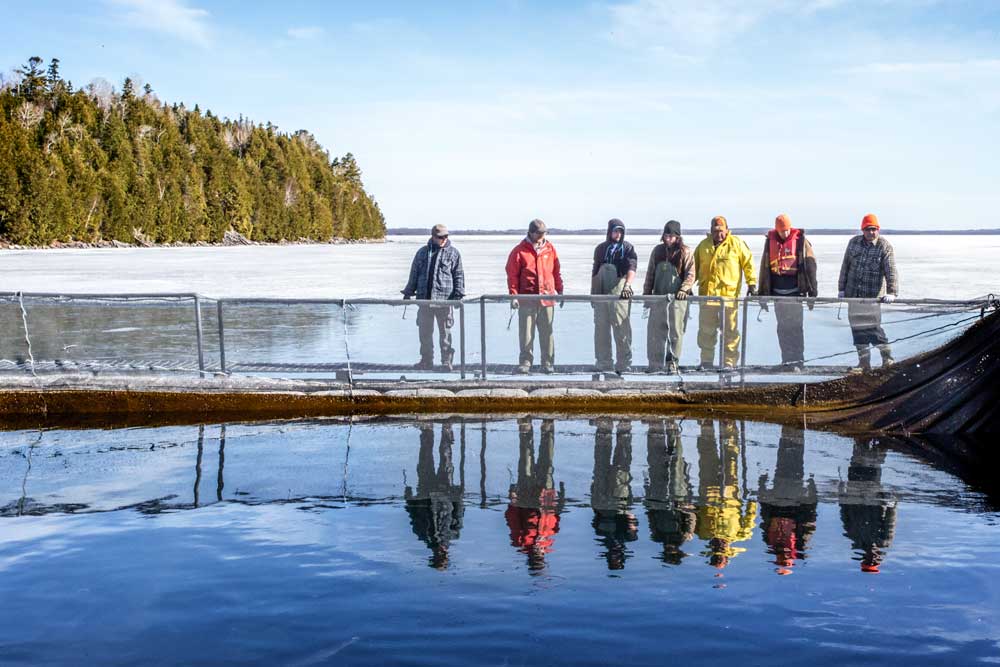
“I love this Island, I don’t want to leave. My wife wants to travel—I don’t; I like it a lot here,” Mr. Meeker said. “Sometime I might look like a monster because I am willing to make a profit out of my business. Who doesn’t? Finding a good balance is reasonably the key,” he continued, staring at one of his old pictures in a Penguins uniform.
“Can I barf?” he mumbled looking out of his truck window.

